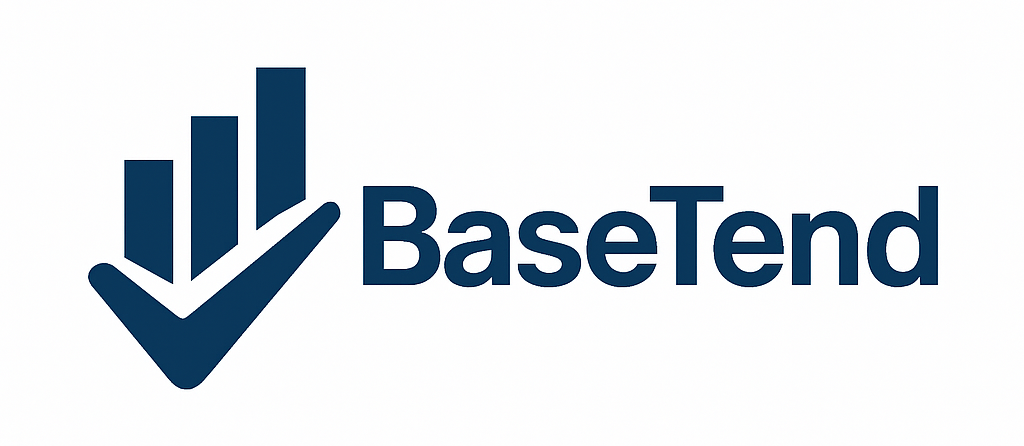The Top Bookkeeping Mistakes Small Businesses Make (and How to Avoid Them)
Running a small business requires wearing many hats—marketing manager, salesperson, customer service rep, and often, bookkeeper. While bookkeeping might not be the most glamorous part of entrepreneurship, it’s one of the most important. Accurate financial records are the foundation for smart decision-making, tax compliance, and long-term success.
Unfortunately, many small business owners fall into the same traps when it comes to managing their books. Below, we’ll explore the most common bookkeeping mistakes small businesses make, why they matter, and how you can avoid them.
1. Mixing Personal and Business Finances
The mistake:
One of the most frequent errors small business owners make is using the same bank account or credit card for both personal and business transactions. It may feel convenient in the early days, but it quickly becomes a nightmare when it’s time to track expenses, prepare financial reports, or file taxes.
Why it matters:
Blurring the line between personal and business finances makes it difficult to understand your company’s true financial health. It can also trigger red flags in an audit and complicate tax deductions.
How to avoid it:
- Open a dedicated business bank account and credit card.
- Always deposit income and pay expenses through these accounts.
- If you must take money out of the business, treat it as an owner’s draw or salary.
2. Failing to Track Expenses Consistently
The mistake:
Small business owners often stash receipts in a shoebox or wait until year-end to record expenses. This leads to missing information, inaccurate financial statements, and lost tax deductions.
Why it matters:
Every untracked expense is a missed opportunity to reduce your taxable income. Inaccurate records also make it difficult to control costs or see where your money is really going.
How to avoid it:
- Record expenses regularly, ideally weekly.
- Use cloud-based accounting software that allows you to snap photos of receipts and categorize expenses instantly.
- Set aside 15 minutes at the end of each week to reconcile transactions.
3. Ignoring Bank Reconciliation
The mistake:
Bank reconciliation—comparing your books to your bank statements—is often skipped because it feels tedious. But failing to reconcile means errors, fraud, or overlooked fees can go unnoticed for months.
Why it matters:
Even small discrepancies can snowball. Reconciling regularly ensures your financial data is accurate and trustworthy.
How to avoid it:
- Reconcile bank and credit card accounts at least once a month.
- Leverage accounting software that automates much of the process.
- Investigate and correct any discrepancies immediately.
4. Misclassifying Expenses
The mistake:
When expenses are put in the wrong category, financial reports and tax filings can become inaccurate. For example, recording a capital purchase as a simple expense rather than an asset.
Why it matters:
Incorrect classification distorts profit and loss statements and may cause issues with tax authorities if deductions are claimed improperly.
How to avoid it:
- Familiarize yourself with common expense categories.
- When in doubt, ask your accountant how to classify unusual expenses.
- Create a simple chart of accounts tailored to your business, rather than using default templates.
5. Doing Everything Manually
The mistake:
Some small businesses still rely on spreadsheets or even pen and paper to track finances. Manual bookkeeping is prone to error and takes far more time than necessary.
Why it matters:
Manual systems make it harder to scale, collaborate, and get real-time financial insights. They also increase the likelihood of miscalculations.
How to avoid it:
- Use accounting software such as QuickBooks, Xero, or Wave.
- Automate recurring tasks like invoicing, payroll, and expense tracking.
- Regularly back up digital records for security.
6. Neglecting Accounts Receivable
The mistake:
Sending invoices late, forgetting to follow up, or failing to enforce payment terms is common. Many small businesses end up with significant amounts tied up in unpaid invoices.
Why it matters:
Cash flow is the lifeblood of a small business. Even if sales are strong, late payments can create cash shortages that threaten day-to-day operations.
How to avoid it:
- Send invoices promptly after delivering goods or services.
- Set clear payment terms (e.g., net 15 or net 30).
- Automate payment reminders.
- Consider offering small discounts for early payment or charging interest on late invoices.
7. Overlooking Payroll Compliance
The mistake:
Payroll is more than just writing checks—it involves tax withholdings, employee classification, and regulatory compliance. Many small business owners misclassify employees as contractors or fail to submit payroll taxes on time.
Why it matters:
Errors in payroll can lead to hefty fines, penalties, and frustrated employees.
How to avoid it:
- Use payroll software or outsource to a payroll service provider.
- Stay current on federal, state/provincial, and local payroll laws.
- Classify workers correctly: employees vs. contractors.
8. Forgetting About Tax Deadlines
The mistake:
Waiting until the last minute to think about taxes often results in missing deadlines, underpaying, or scrambling for documents.
Why it matters:
Late tax filings and payments can lead to penalties, interest charges, and unnecessary stress.
How to avoid it:
- Mark tax deadlines on your calendar at the beginning of the year.
- Set aside funds regularly for tax payments.
- Work with a tax professional who can help you estimate quarterly payments and file on time.
9. Not Backing Up Financial Data
The mistake:
Many businesses store records only on one computer or in paper form. If that device crashes or documents are lost, critical data disappears.
Why it matters:
Lost records can cripple operations and make it nearly impossible to file accurate taxes or apply for financing.
How to avoid it:
- Use cloud-based accounting systems with automatic backups.
- Keep a secure offline backup (encrypted hard drive or USB).
- Establish a simple disaster recovery plan.
10. Failing to Seek Professional Help
The mistake:
Many entrepreneurs try to do all their bookkeeping themselves to save money. But as the business grows, the complexity often outpaces their expertise.
Why it matters:
DIY bookkeeping can work in the beginning, but mistakes compound as the business scales. Poor records can lead to cash flow issues, missed deductions, or even legal problems.
How to avoid it:
- Consider hiring a bookkeeper, even part-time.
- Partner with an accountant who can review your books periodically and provide tax planning.
- Use your time to focus on growth, not just record-keeping.
11. Overlooking Financial Reports
The mistake:
Some business owners only think about their books during tax season. They fail to regularly review profit and loss statements, balance sheets, or cash flow reports.
Why it matters:
Financial reports provide insights into profitability, spending patterns, and cash flow. Without them, decision-making is based on guesswork.
How to avoid it:
- Review financial statements monthly.
- Look for trends, such as rising costs or declining revenue.
- Use the data to adjust pricing, spending, or strategy proactively.
12. Not Planning for Growth
The mistake:
Bookkeeping is often focused on the past—what’s been spent or earned. Many small business owners fail to use their books as a forward-looking tool.
Why it matters:
Growth requires capital planning, cash flow forecasting, and understanding when to reinvest in the business.
How to avoid it:
- Build budgets and forecasts based on your financial data.
- Track key performance indicators (KPIs) relevant to your industry.
- Revisit your financial plan quarterly to adjust for changes.
Final Thoughts
Bookkeeping mistakes are common, but they don’t have to derail your business. By separating business and personal finances, tracking expenses consistently, reconciling accounts, and leveraging technology, you’ll build a strong financial foundation.
Most importantly, don’t hesitate to seek professional guidance. A qualified bookkeeper or accountant is not just an expense—they’re an investment in the stability and growth of your business.
Accurate, up-to-date books give you clarity, confidence, and control. Avoiding these pitfalls will free you to focus on what you do best: serving your customers and growing your business.


